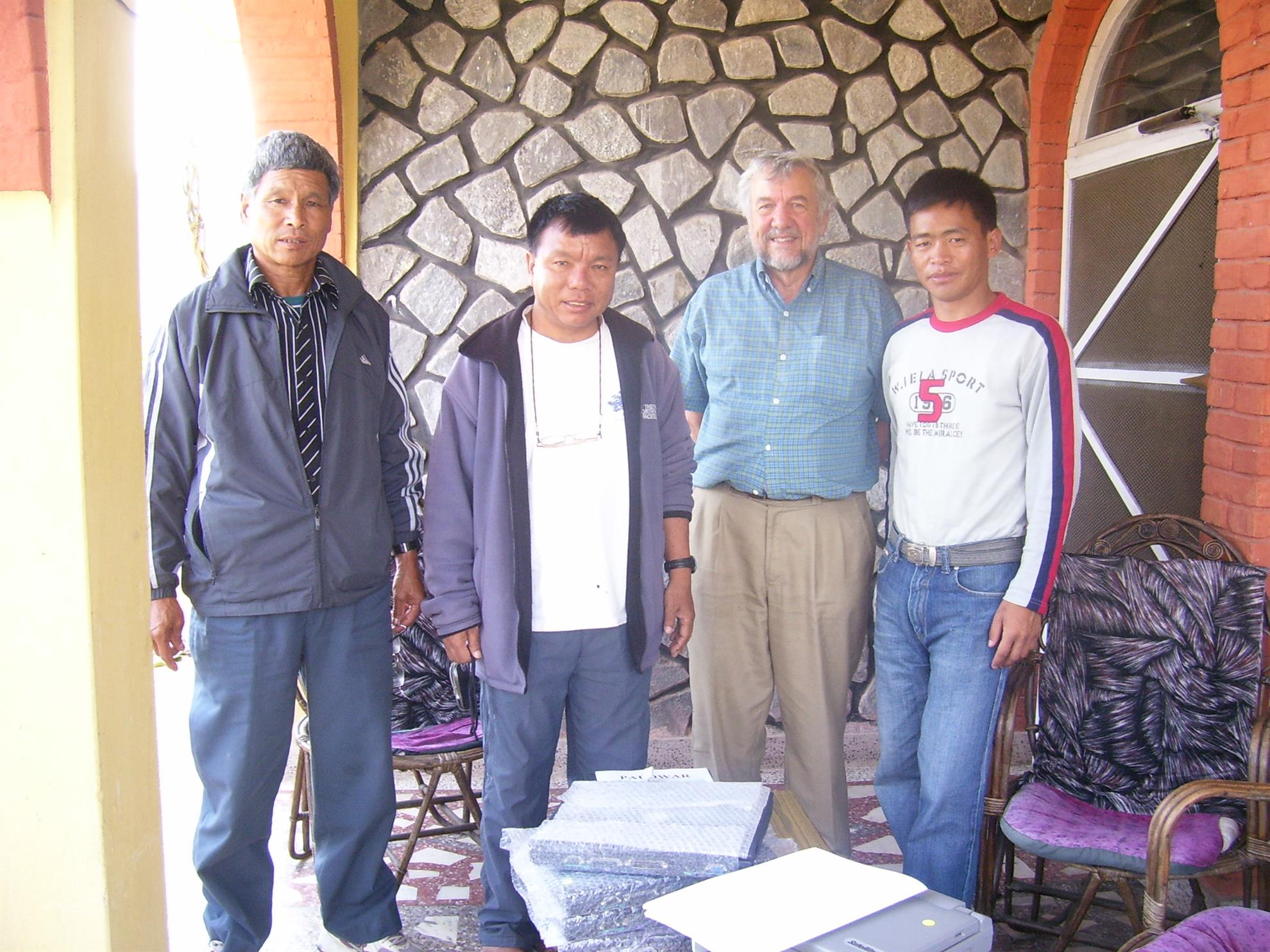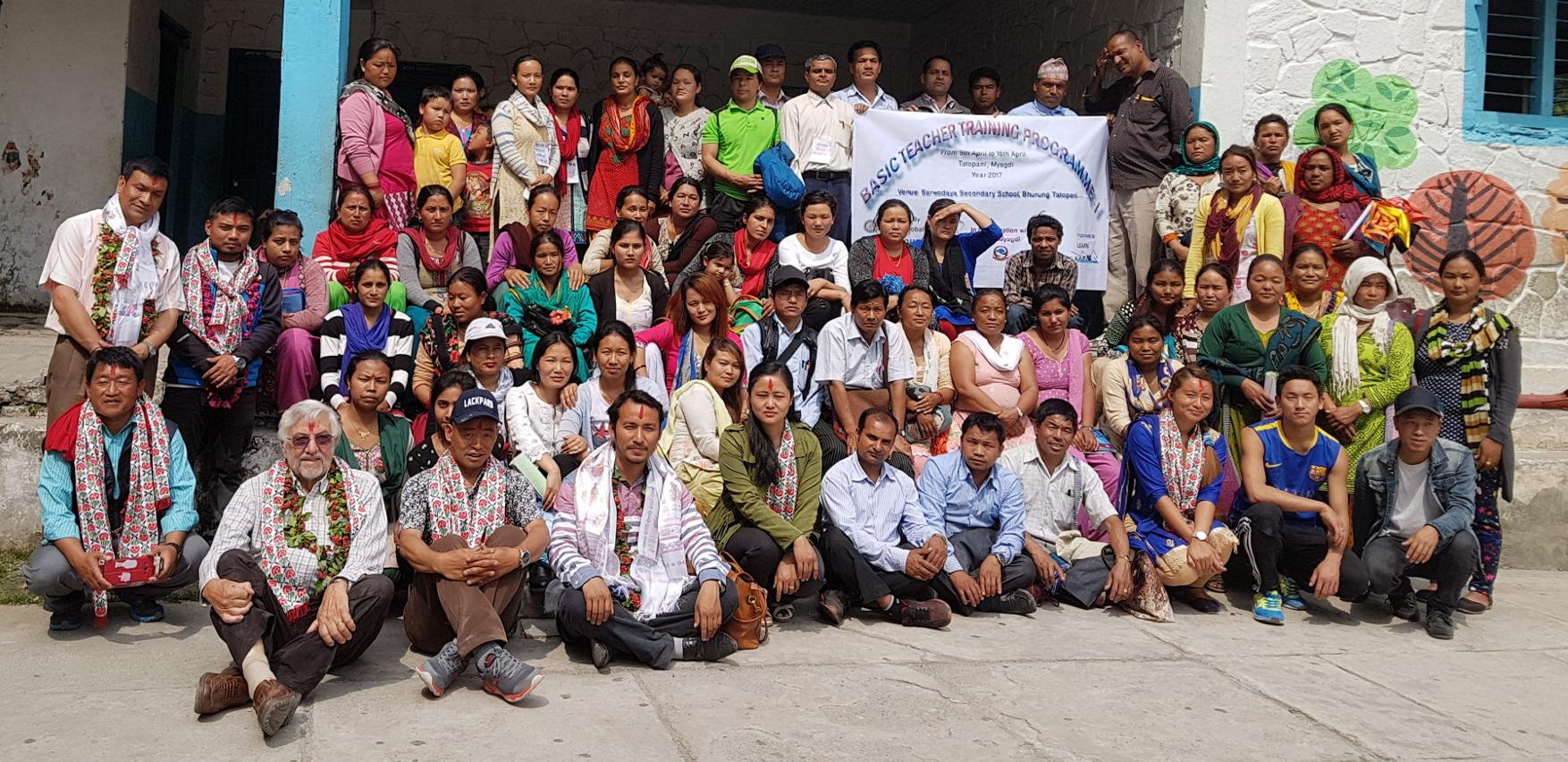Written by RPM Member, Peter Hall
Asked to write a few words about QEN for the newsletter, I pondered what I might say of a project with origins dating back to 1993. I have chosen to focus on three Nepalese for whom I have immense respect, and who have been the inspiration for all that I have done for Nepal. Click here to Read More
 |  |
While trekking in Nepal with a group of friends in 1993 we met Gyan Bahadur Pun at Khopra Danda, a vantage point on the slopes of Annapurna South. Many years late I recorded his recollections of his life which you can find here on YouTube
Gyan had no school to go to until he was eleven, when his father helped establish one in his village of Paudwar. By fifteen he had been engaged as a teacher. After brief teacher training and returning to the school he was appointed head teacher over two others, a role he had held for more than thirty years when I met him. Among his achievements were:
* within four months of appointment, increasing enrolments from 36 boys to 120 including 40% girls
* providing school toilets when such things were unheard of in Nepal
* introducing IT as a subject (with computers we supplied in 2001), retaining students in their village and leading to increased enrolments
* within four months of appointment, increasing enrolments from 36 boys to 120 including 40% girls
* providing school toilets when such things were unheard of in Nepal
* introducing IT as a subject (with computers we supplied in 2001), retaining students in their village and leading to increased enrolments
With my wife Ronda I met Mahabir Pun in his village of Nangi in 1998. He had achieved training as a teacher in Nepal, and in later years gained a scholarship to the University of Nebraska, USA where he achieved a Bachelor’s and later a Master’s degree. He attracted US support for improving education for his community back home, for which he became widely recognised, receiving an Ashoka Fellowship, the Ramon Magsaysay Prize (“the Nobel prize of Asia”) and an honorary Doctorate at the University of Nebraska, having given the university Commencement Address. For more, Google Mahabir Pun. Mahabir visited us at our farm in Central Victoria in 1999.
Among his achievements has been establishing a Nepal Wireless Network, the first connection of remote Nepalese villages to the internet. He took components of 486 computers from the USA (avoiding transport of their steel cases) and had students assemble them in wooden boxes. For radio transmission, home-made aerials were strung up in trees. Mahabir continues to work for his community, promoting a Nepal Innovation Centre (https://nicnepal.org/) to retain expertise within his country.
Krishna Pun took over from Gyan as Headmaster of Paudwar Secondary School in 2002, a position he was forced to relinquish in 2004 to save his family from Maoist guerrillas. In 2008 we returned, and as we walked to Paudwar, Krishna shared his dreams to give village children the quality of education that his children enjoyed at private school in Kathmandu. Those dreams have been our driving force to this day, implemented in the delivery of teacher training to some of the most remote schools in the country. Krishna now heads LEARN (“Lifting Education, Advancing Rural Nepal” as an NGO with four staff planning and delivering that training.
Each of these men – not just Mahabir – should be recognised as heroes of Nepal. Aid projects that can find such people to work with are on a winner. It has been my privilege to help Krishna in particular to bring his dreams to fruition. His commitment, along with his team, deserves all of the support we can give them.
The contributions of these three men to education in their country warrants the writing of a book, a task that I have begun with pleasure.
Peter Hall
President, Quality Education Nepal Inc.
President, Quality Education Nepal Inc.
Photos attached: Gyan, Mahabir and Krishna with me in 2008; Graduation ceremony of a teacher training course run by LEARN